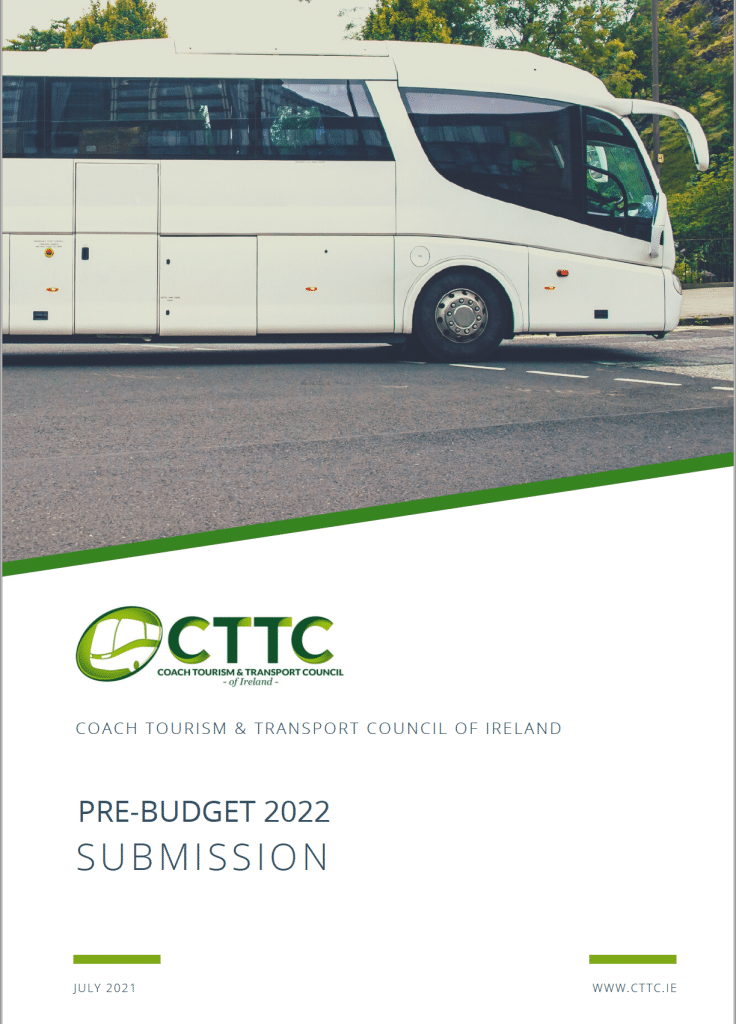In its pre-Budget 2022 submission, the Coach Tourism & Transport Council of Ireland (CTTC) has called on the Government to reconfigure its national transport strategy and recognise the crucial role of the private coach sector in helping to decarbonise Ireland’s transport system, and encourage a modal shift to public transport, away from private vehicles.
Some of the key proposals outlined as part of the pre-Budget 2022 submission include: see full submission Here
- Establishing a designated Coach Transport Sustainability Fund
- Expanding the Alternatively-Fuelled Heavy Duty Vehicle (AFHDV) Purchase Grant Scheme
- Strategic provision of affordable ‘park and ride’ facilities
Enhancing the current network of Quality Bus Corridors along the arterial routes into Dublin and other major cities
Commenting on the ongoing situation, John Halpenny, Chairman of the CTTC, said: “Enhancing our national public transport network must form an integral part of our collective journey towards achieving net-zero carbon emissions. To facilitate this, the Government must adopt a pro-public transport stance, and be willing to leverage the full potential of private bus and coach services, to encourage a modal shift towards public transport, away from private, single-occupancy vehicles.”
“As an industry, we are committed to adopting sustainable practices, with the vast majority of our members possessing some of the most environmentally compatible fleets. So far, the cost of doing this has largely been fronted by the operators themselves, against a backdrop of considerable risk, given the speedy obsolescence of some of these technologies. In light of the significant financial burden associated with purchasing alternatively fuelled vehicles, the Government must allocate specific funding to the sector, under a designated Coach Transport Sustainability Fund, and enhance the Alternatively-Fuelled Heavy Duty Vehicle Purchase Grant Scheme, to ensure the effective greening of the sector”.
“Of course, if we are to try and encourage a greater uptake in public transport, then passengers need to be incentivised to use it. Adequate funding must be allocated to allow for the strategic provision of affordable ‘park and ride’ facilities and an enhancement of the existing network of Quality Bus Corridors, to improve the efficiency of services and reduce carbon emissions. A single coach has the potential to take 40 cars off the road. Even just a 10% reduction in peak period car usage will cut urban CO2 emissions by 14,500 tonnes per annum”.
“Ultimately, I would strongly urge the Government to implement the proposals outlined in our pre-Budget submission and ensure that enabling the transition to a sustainable transport system is an absolute priority. As an industry, we stand ready and prepared to facilitate a modal shift away from private cars – but we need targeted supports and sectoral reforms to do this”.



